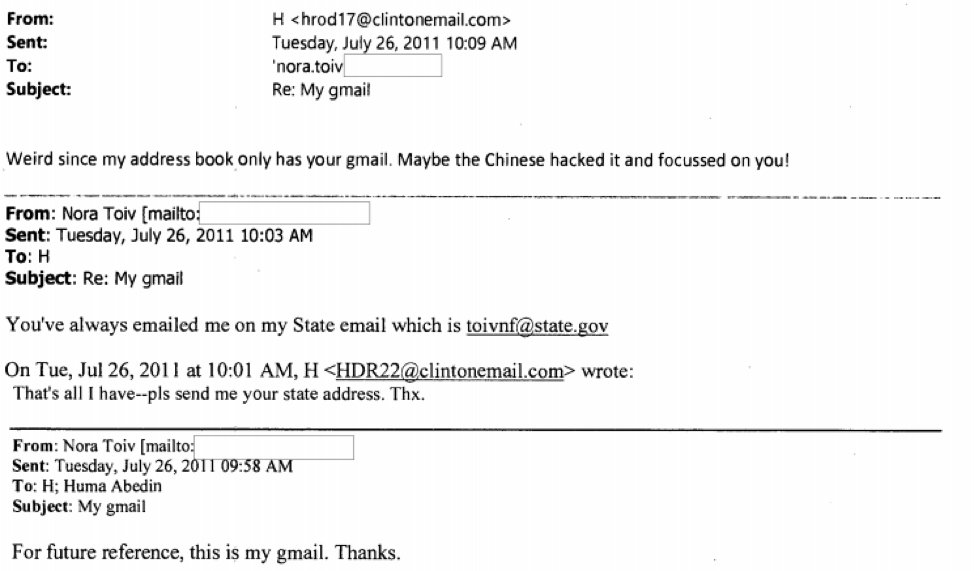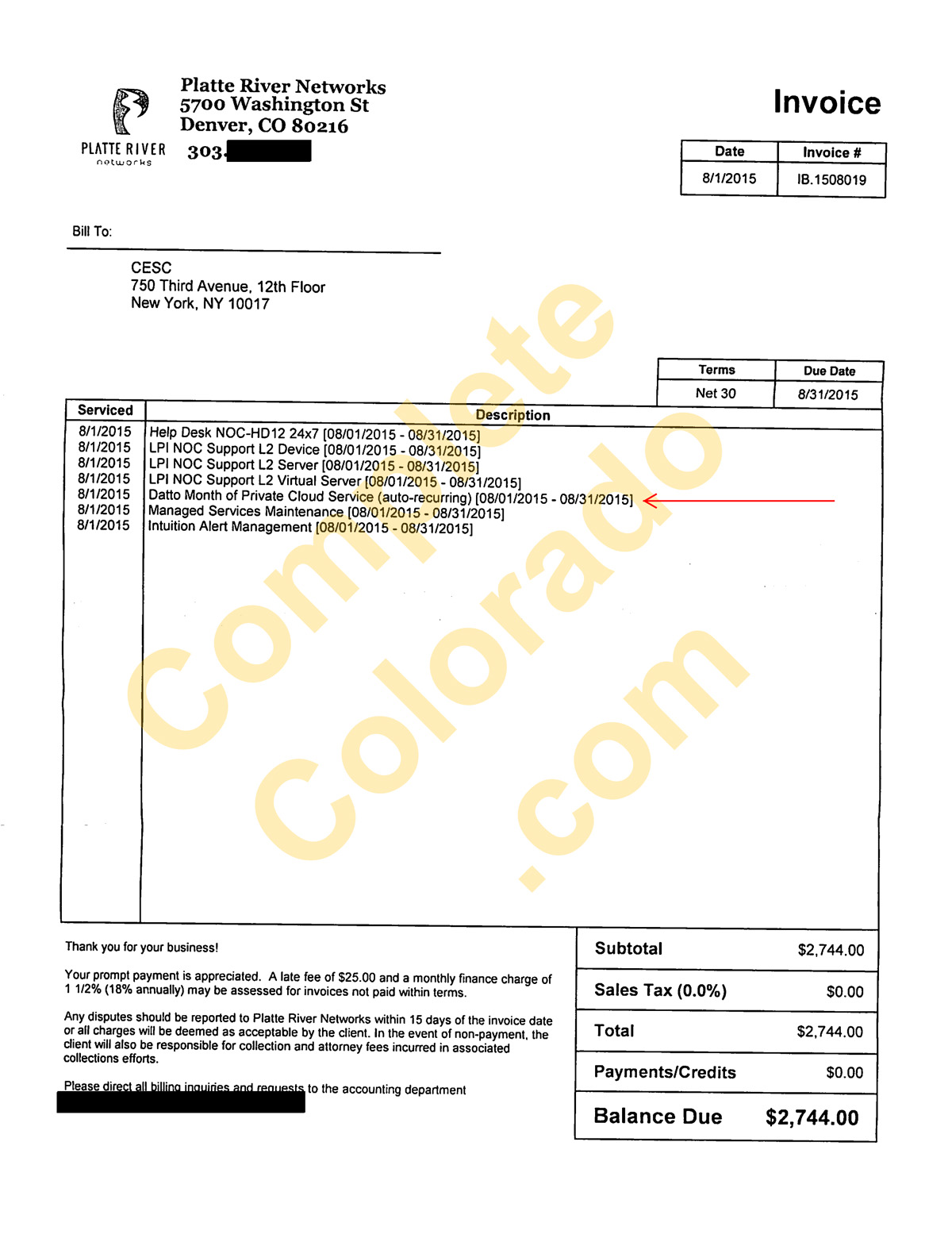Source: Clinton IT specialist revealing server details to FBI, ‘devastating witness’
FNC: Former Hillary Clinton IT specialist Bryan Pagliano, a key witness in the email probe who struck an immunity deal with the Justice Department, has told the FBI a range of details about how her personal email system was set up, according to an intelligence source close to the case who called him a “devastating witness.”
The source said Pagliano told the FBI who had access to the former secretary of state’s system – as well as when –and what devices were used, amounting to a roadmap for investigators.
“Bryan Pagliano is a devastating witness and, as the webmaster, knows exactly who had access to [Clinton’s] computer and devices at specific times. His importance to this case cannot be over-emphasized,” the intelligence source said.
The source, who is not authorized to speak on the record due to the sensitivity of the ongoing investigation, said Pagliano has provided information allowing investigators to knit together the emails with other evidence, including images of Clinton on the road as secretary of state.
The cross-referencing of evidence could help investigators pinpoint potential gaps in the email record. “Don’t forget all those photos with her using various devices and it is easy to track the whereabouts of her phone,” the source said. “It is still boils down to a paper case. Did you email at this time from your home or elsewhere using this device? And here is a picture of you and your aides holding the devices.”
A source close to Pagliano did not dispute the basic details of what was provided to the FBI, but said the highly skilled former State Department IT specialist had met with the bureau on a “limited basis” and was at best a “peripheral” player in the investigation.
At a Democratic debate Wednesday evening, Clinton brushed off the question when asked by the moderator whether she would withdraw from the presidential race if faced with criminal charges.
Univision’s Jorge Ramos asked, “If you get indicted, will you drop out?” Clinton responded, “My goodness. That is not going to happen. I’m not even answering that question.”
She then added her now standard explanation that nothing she sent or received was marked classified at the time. While technically correct, the distinction appears misleading. The January 2009 classified information non-disclosure agreement signed by Clinton says she understood that classified information could be marked and unmarked, as well as verbal communications.
Classification is based on content, not markings.
The intelligence source said the FBI is “extremely focused” on the 22 “top secret” emails deemed too damaging to national security to publicly release under any circumstances, with agents reviewing those sent by Clinton as well her subordinates including former chief of staff Cheryl Mills.
“Mrs. Clinton sending them in this instance would show her intent much more than would receiving [them],” the source said. “Hillary Clinton was at a minimum grossly negligent in her handling of NDI [National Defense Information] materials merely by her insisting that she utilize a private server versus a [U.S. government] server. Remember, NDI does not have to be classified.” According to the Congressional Research Service, NDI is broadly defined to include “information that they have reason to know could be used to harm the national security.”
It was emphasized to Fox News that Clinton’s deliberate “creation” and “control” of the private server used for her official government business is the subject of intense scrutiny. Pagliano knows key details as to how the private server was installed and maintained in her home.
The 22 “top secret” emails are not public, but in a Jan. 14 unclassified letter, first reported by Fox News, Intelligence Community Inspector General I. Charles McCullough III notified Congress of the findings of a recent comprehensive review by intelligence agencies identifying “several dozen” additional classified emails — including specific intelligence known as “special access programs” (SAP).
That indicates a level of classification beyond even “top secret,” the label previously given to other emails found on her server, and brings even more scrutiny to the presidential candidate’s handling of the government’s closely held secrets.
Pagliano’s lawyer offered no on-record comment for this report. Clinton recently told CBS, “I’m delighted that [Pagliano] has agreed to cooperate, as everyone else has. And I think that we will be moving toward a resolution of this.”
The FBI has not commented beyond the public statements of FBI Director James Comey, who recently told Congress: “I can assure you is that I am very close personally to that investigation to ensure that we have the resources we need, including people and technology, and that it’s done the way the FBI tries to do all of its work: independently, competently and promptly.”
The intelligence source described the morale of agents as “very good and nobody is moping around which is the first sign a big case is going south.”
Bryan Pagliano: 5 Fast Facts You Need to Know
Heavy: Bryan Pagliano, a former IT specialist with the State Department during the tenure of Hillary Clinton as Secretary of State, has been under intense scrutiny for his role in setting up Clinton’s private email server, through which she may have illegally received classified information. After pleading the Fifth through several House Committees, Pagliano was granted immunity by the Justice Department and will cooperate with the FBI in its investigation into the matter.
Pagliano served in the State Department for four years, during part of which he was paid personally by Clinton for “IT services” that include setting up the server in question. In less controversial work, Pagliano helped expand remote work arrangements in the State Department from a D.C.-only option to give worldwide access.
Here’s what you need to know:
He Was Paid off the Books for His Work with Clinton
Pagliano, here with wife Carrie Pagliano and Hillary Clinton, was paid by Clinton personally for “IT services” while employed at the State Department. (Getty)
Pagliano first worked for Clinton as the IT director of her 2008 Presidential campaign, then worked for her political action committee after she suspended her first quest for the White House. In 2009, he joined her State Department team as an IT specialist, but continued to work for the Clintons as a private consultant to their family, and was personally paid by the Clinton family.
Pagliano did not disclose the job or salary on State Department financial disclosure forms, an act that internal documents show could lead to a $10,000 fine or imprisonment. His immunity deal likely prevents these outcomes.
He Pled the Fifth at Several House Committees
Pagliano leaving the Capitol after his call to testify in Benghazi hearings. (Getty)
The question of Hillary Clinton’s emails first arose during the scandal regarding the Benghazi attack. Pagliano, having left the State Department at the time, was subpoenaed by House Select Committee on Benghazi chairman Trey Gowdy regarding information “related to the servers or systems” Clinton used while Secretary of State. Pagliano’s lawyers released the following statement in response:
While we understand that Mr. Pagliano’s response to this subpoena may be controversial in the current political environment, we hope that members of the Select Committee will respect our client’s right to invoke the protections of the Constitution. For these reasons, we respectfully request that the Select Committee excuse Mr. Pagliano from personally appearing on Sept. 10, 2015.
Pagliano was not excused, but did not answer a question during the committee’s hearing. The Justice Department’s grant of immunity means that Pagliano can be compelled to testify.
He Received Immunity & Is Cooperating with the FBI
Pagliano after his House testimony. (Getty)
On March 2, the Justice Department announced that Pagliano would be granted immunity in exchange for his testimony regarding the email scandal. As the name suggests, this means that nothing he says can be used against him, but also means that he cannot invoke the Fifth Amendment to avoid answering questions.
Journalists and legal experts mark this as a major turning point in the inquiry. National Review writer and former prosecutor Andrew McCarthy suggested Pagliano’s immunity deal meant there was “probably” a grand jury for Pagliano. Though he didn’t share McCarthy’s certainty, Charles Tiefer at Forbes suggested the immunity deal meant the case was coming to a conclusion.
His Deal Could Be a Bad Sign for Hillary
Hillary Clinton and longtime aide Huma Abedin both face significant scrutiny in the email scandal. (Getty)Whether Pagliano’s immunity deal was sought by his legal team or by the FBI to circumvent his Fifth Amendment invocations, his testimony is “potentially damaging” to others facing scrutiny. A key part of the investigation into Clinton involves whether she knew the information she sent and received through the private server was classified, which requires speaking to her state of mind. Free from fear of his own prosecution, Pagliano can testify (or be forced to testify) to that state of mind. Other top aides, like Huma Abedin and Jake Sullivan, may also be implicated by his testimony.
Clinton, though, doesn’t seem worried. In an interview with CBS News, she dismissed concerns about any upcoming indictment:
It’s a security review. I’m delighted that he has agreed to cooperate, as everyone else has, and I think we’ll be moving toward a resolution of this…I think we’re getting closer and closer to wrapping this up. I also know that there were reports today about the hundreds of officials and the thousand emails that they were sending back and forth that have been looked at and classified retroactively. This really raises serious questions about this whole process, I think.
In His Government Career, He Pioneered Remote Work for State Employees
*Not all of Pagliano’s work was particularly controversial. The State Department’s remote work, or “teleworking,” capabilities were initially confined to the Washington, D.C. area. Pagliano stated in an interview with Trezza Media Group, part of which is seen above, that Foreign Service Officers rotating into D.C. as part of their duties gave rave reviews of the system and wanted access in their regular embassies. Pagliano, as a member of the Information Resource Management Bureau, helped expand the system around the world.Pagliano left the State Department in 2013 to serve as an analyst at technology firm Gartner, a position he held for one year. While at Gartner, however, Pagliano continued to perform contract work for the State Department, which was terminated at an unknown time and announced one day after his being granted immunity.








